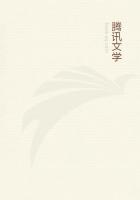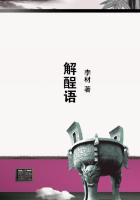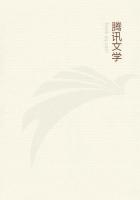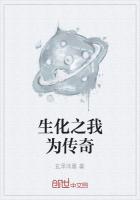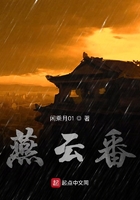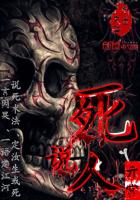The man that doesn't ante gets the best of this world; anything he'll stand is good enough for the man that pays.
If you try to be too sharp you'll get into gaol sooner or later; if you try to be too honest the chances are that the bailiff will get into your house -- if you have one -- and make a holy show of you before the neighbours. The honest softy is more often mistaken for a swindler, and accused of being one, than the out-and-out scamp; and the man that tells the truth too much is set down as an irreclaimable liar. But most of the time crow low and roost high, for it's a funny world, and you never know what might happen.
"And if you get married (and there's no accounting for a woman's taste) be as bad as you like, and then moderately good, and your wife will love you.
If you're bad all the time she can't stand it for ever, and if you're good all the time she'll naturally treat you with contempt.
Never explain what you're going to do, and don't explain afterwards, if you can help it. If you find yourself between two stools, strike hard for your own self, Smith -- strike hard, and you'll be respected more than if you fought for all the world. Generosity isn't understood nowadays, and what the people don't understand is either `mad' or `cronk'.
Failure has no case, and you can't build one for it. . . .
I started out in life very young -- and very soft."
. . . . .
"I thought you were going to tell me your story, Steely," remarked Smith.
Steelman smiled sadly.
[End of original text.]
About the author:
Henry Lawson was born near Grenfell, New South Wales, Australia on 17 June 1867. Although he has since become Australia's most acclaimed writer, in his own lifetime his writing was often "on the side" -- his "real" work being whatever he could find.
His writing was frequently taken from memories of his childhood, especially at Pipeclay/Eurunderee. In his autobiography, he states that many of his characters were taken from the better class of diggers and bushmen he knew there.
His experiences at this time deeply influenced his work, for it is interesting to note a number of deions and phrases that are identical in his autobiography and in his stories and poems.
He died at Sydney, 2 September 1922. He is most famous for his short stories.
"On the Track" and "Over the Sliprails" were both published at Sydney in 1900, the prefaces being dated March and June respectively -- and so, though printed separately, a combined edition was printed the same year (the two separate, complete works were simply put together in one binding); hence they are sometimes referred to as "On the Track and Over the Sliprails".
. . . . .
An incomplete Glossary of Australian terms and concepts which may prove helpful to understanding this book:
Anniversary Day: Alluded to in the text, is now known as Australia Day.
It commemorates the establishment of the first English settlement in Australia, at Port Jackson (Sydney Harbour), on 26 January 1788.
Billy: A kettle used for camp cooking, especially to boil water for tea.
Cabbage-tree/Cabbage-tree hat: A wide-brimmed hat made with the leaves of the cabbage tree palm (Livistona australis). It was a common hat in early colonial days, and later became associated with patriotism.
Gin: An aboriginal woman; use of the term is analogous to "squaw" in N. America. May be considered derogatory in modern usage.
Graft: Work; hard work.
Humpy: (Aboriginal) A rough or temporary hut or shelter in the bush, especially one built from bark, branches, and the like.
A gunyah, wurley, or mia-mia.
Jackeroo/Jackaroo: At the time Lawson wrote, a Jackeroo was a "new chum" or newcomer to Australia, who sought work on a station to gain experience.
The term now applies to any young man working as a station hand.
A female station hand is a Jillaroo.
Jumbuck: A sheep.
Larrikin: A hoodlum.
Lollies: Candy, sweets.
'Possum/Possum: In Australia, a class of marsupials that were originally mistaken for the American animal of the same name.
They are not especially related to the possums of North and South America, other than being marsupials.
Public/Pub.: The traditional pub. in Australia was a hotel with a "public" bar -- hence the name. The modern pub has often (not always) dispensed with the lodging, and concentrated on the bar.
Push: A group of people sharing something in common; Lawson uses the word in an older and more particular sense, as a gang of violent city hoodlums.
Ratty: Shabby, dilapidated; somewhat eccentric, perhaps even slightly mad.
Selector: A free selector, a farmer who selected and settled land by lease or license from the government.
Shout: To buy a round of drinks.
Sliprails/slip-rails: movable rails, forming a section of fence, which can be taken down in lieu of a gate.
Sly grog shop or shanty: An unlicensed bar or liquor-store, especially one selling cheap or poor-quality liquor.
Squatter: A person who first settled on land without government permission, and later continued by lease or license, generally to raise stock; a wealthy rural landowner.
Station: A farm or ranch, especially one devoted to cattle or sheep.
Stoush: Violence; to do violence to.
Tea: In addition to the regular meaning, Tea can also mean a light snack or a meal (i.e., where Tea is served).
In particular, Morning Tea (about 10 AM) and Afternoon Tea (about 3 PM) are nothing more than a snack, but Evening Tea (about 6 PM) is a meal.
When just "Tea" is used, it usually means the evening meal.
Variant: Tea-time.
Tucker: Food.
Also: a hint with the seasons -- remember that the seasons are reversed from those in the northern hemisphere, hence June may be hot, but December is even hotter. Australia is at a lower latitude than the United States, so the winters are not harsh by US standards, and are not even mild in the north. In fact, large parts of Australia are governed more by "dry" versus "wet" than by Spring-Summer-Fall-Winter.

